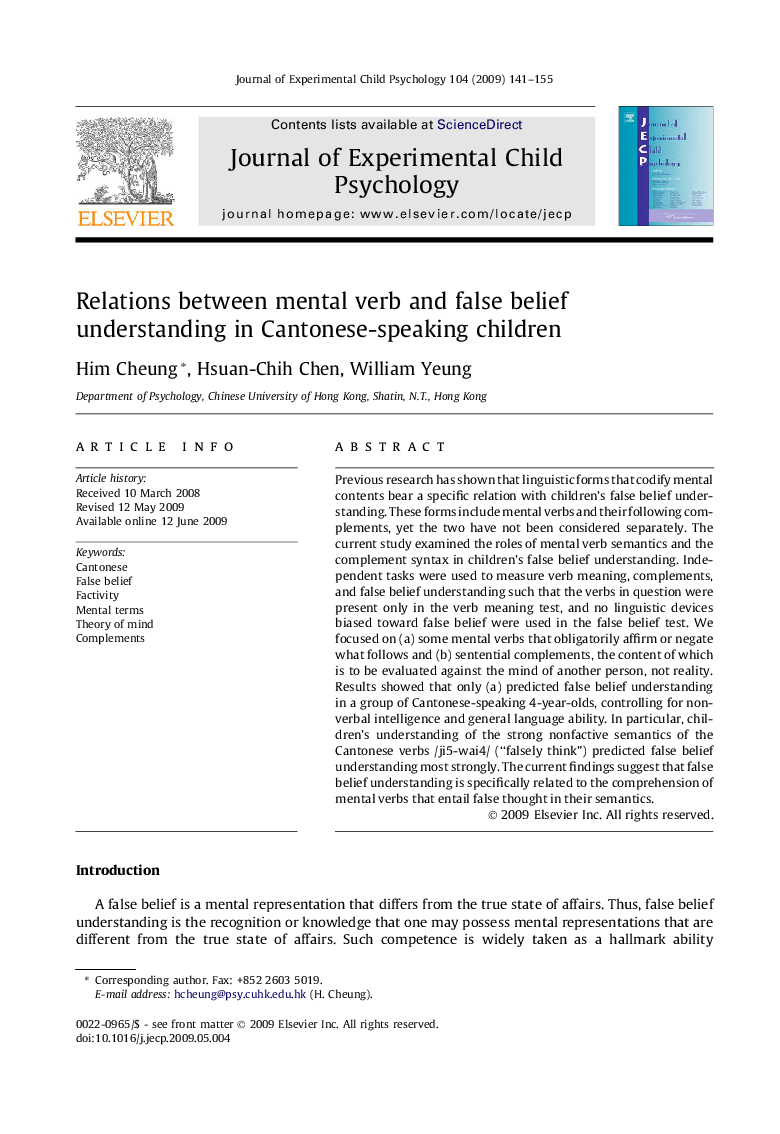| کد مقاله | کد نشریه | سال انتشار | مقاله انگلیسی | نسخه تمام متن |
|---|---|---|---|---|
| 918667 | 919505 | 2009 | 15 صفحه PDF | دانلود رایگان |

Previous research has shown that linguistic forms that codify mental contents bear a specific relation with children’s false belief understanding. These forms include mental verbs and their following complements, yet the two have not been considered separately. The current study examined the roles of mental verb semantics and the complement syntax in children’s false belief understanding. Independent tasks were used to measure verb meaning, complements, and false belief understanding such that the verbs in question were present only in the verb meaning test, and no linguistic devices biased toward false belief were used in the false belief test. We focused on (a) some mental verbs that obligatorily affirm or negate what follows and (b) sentential complements, the content of which is to be evaluated against the mind of another person, not reality. Results showed that only (a) predicted false belief understanding in a group of Cantonese-speaking 4-year-olds, controlling for nonverbal intelligence and general language ability. In particular, children’s understanding of the strong nonfactive semantics of the Cantonese verbs /ji5-wai4/ (“falsely think”) predicted false belief understanding most strongly. The current findings suggest that false belief understanding is specifically related to the comprehension of mental verbs that entail false thought in their semantics.
Journal: Journal of Experimental Child Psychology - Volume 104, Issue 2, October 2009, Pages 141–155